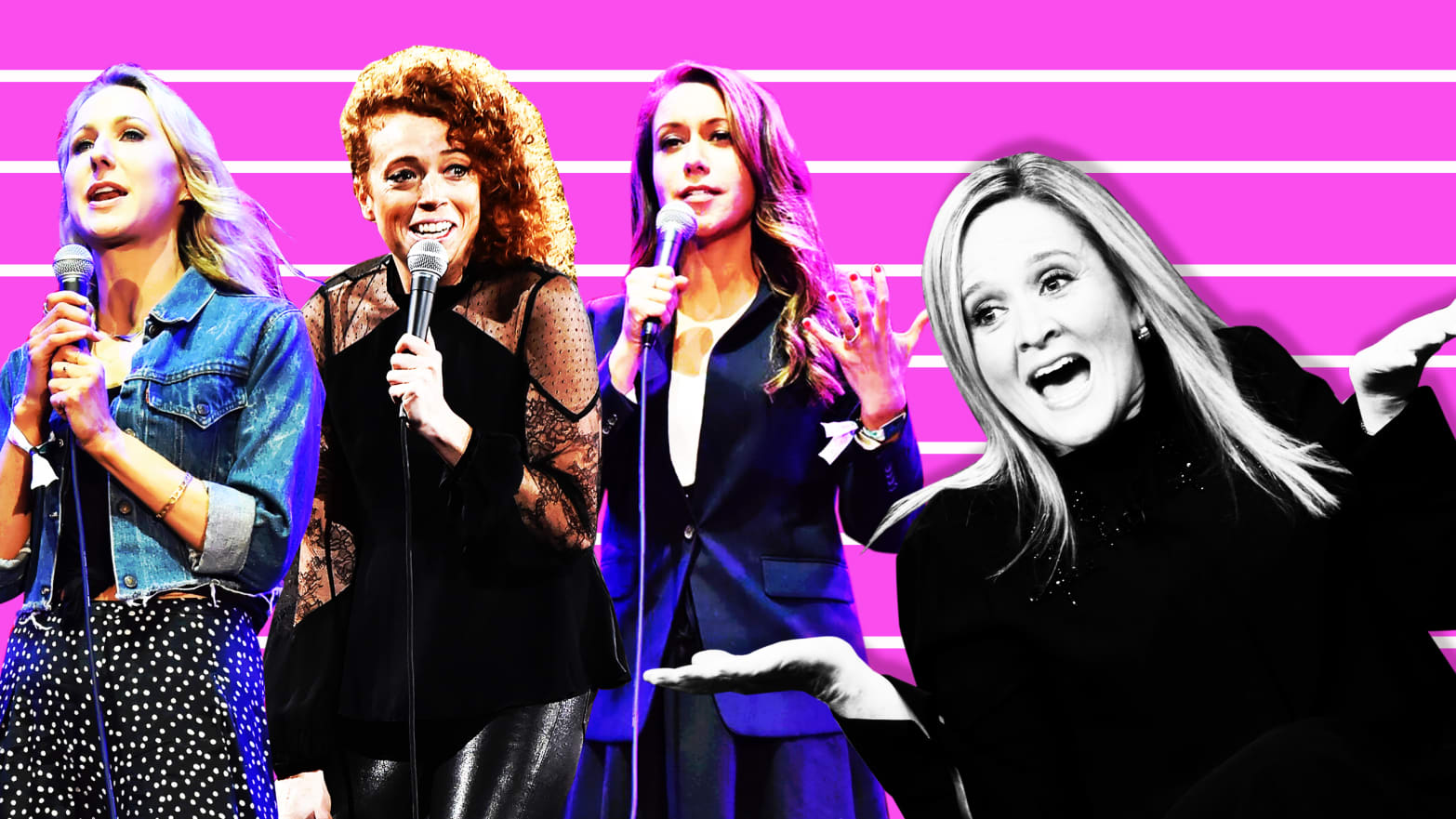SAN FRANCISCO, California—“I’d rather be called cunt than, like, ma’am,” Nikki Glaser jokes before her set at Comedy Central’s Clusterfest on Saturday.
Glaser—the host of the You Up? morning show on Comedy Central’s SiriusXM channel—along with her friend and fellow stand-up Rachel Feinstein, are about to perform as part of “Amy Schumer and Friends” on the enormous Civic Center Plaza in this city. And while no one at the second annual Clusterfest seems particularly concerned about offending anyone with their jokes, there is a palpable chilling effect in the air.
Just a few days earlier, Samantha Bee was forced to publicly apologize for calling Ivanka Trump a “feckless cunt.” A month before that, Michelle Wolf was accused of making inappropriate jokes about Sarah Huckabee Sanders’ looks. And then there is Roseanne Barr, whose ABC show was canceled after she tweeted an openly racist attack on Valerie Jarrett.
These three cultural moments arguably have more differences than similarities, but in each case a female comedian was condemned for criticizing another woman. As Morning Joe’s Mika Brzezinski tweeted after the White House Correspondents’ Dinner, “All women have a duty to unite when these attacks happen.”
“The idea that we somehow can’t take attacks on our character because we’re women is kind of offensive in itself,” Feinstein says. Michelle Wolf “was supposed to roast people” at the event and that’s exactly what she did. “Everyone’s attacking a woman who did her job in the name of feminism?” she asks. “I don’t get that. It just makes me feel sleepy. It’s dumb.”
Conservatives love to talk about the “double standard” between right-wing comics like Roseanne Barr and progressive ones like Samantha Bee. But Glaser and Feinstein see a much more significant “double standard” between male and female comedians. Is it any coincidence that the comics who have come under the most fire over the past several months—Wolf, Barr, Bee, and before them Kathy Griffin—have almost all been women?
“I don’t know that it’s a coincidence, I think people don’t like women,” Glaser says, pointing to the music video Snoop Dogg made in which he literally assassinated an effigy of the president. That incident did not cause nearly as much of an uproar as Griffin’s infamous “beheading” photo.
Glaser admits that she was “really scared” by the stories about what happened to Kathy Griffin after Trump unleashed his troll army—the Secret Service—on her last year. “The president can sic his trolls on you and it will ruin your life,” she says, explaining that even her own mother has encouraged her not to say anything that can be “misconstrued” as a direct attack on anyone in power. “So that is terrifying.”
During a separate interview, the comedian and “Roastmaster General” Jeff Ross tells me he’s not so sure the uproar over jokes by Wolf, Bee, and others has anything to do with their gender. Instead, he suggests that the controversies just prove that women are “doing great” right now in comedy. “The bigger you are, the more scrutiny and the more haters you get,” he says.
Over the course of her career, which has included a stint on Last Comic Standing and appearances on HBO’s Crashing, Feinstein has come to notice that certain words are used to refer to female comics—“vulgar,” “gross,” “dirty”—that are almost never used to describe men. “People have been saying disgusting, crazy, sexual, dirty things forever, but you get kind of scolded when you’re a woman,” she says.
As for the word that has landed Bee in hot water, Glaser says she thinks “cunt” has actually overtaken “bitch” as the profanity of choice for female comedians. “I don’t think it’s as bad as it used to be,” she says. “I think that in the last couple of years it has lost its edge.”
“It’s almost a fun-loving phrase at this point,” Feinstein jokes of “feckless cunt,” which has taken on a life of its own after Bee used it on her show to describe Donald Trump’s daughter.
In her apology statement last week, Bee called her own comments “inappropriate and inexcusable,” adding, “I crossed a line, and I deeply regret it.” But these women aren’t quite buying the “sincerity” of Bee’s apology.
“Sometimes, yeah, people say horrible, hateful and horrific things. And yeah, it’s probably good to apologize if you mean it,” Feinstein says. “But it’s a game, this apology thing, and people love to be outraged.”
“I would totally apologize for something I said on stage because I’m constantly evolving and learning empathy,” Glaser adds, joking that she recently “got off Zoloft” and “realized that people have feelings other than mine.”
“There are things I’ve said on stage that I would never say now,” she continues. “I’m not one of those comedians who would be like, ‘I will never apologize for anything!’ because I’m still learning how to be a good human.”
One thing Glaser says she’s learned not to do is make fun of other women’s physical appearances. But she stresses that this was not case with Wolf or Bee, despite what commentators on the right may want people to think.
“So unless you’re making fun of another woman’s body or looks, I don’t have a problem with women going after other women,” she says. “I think we need to. Especially if they’re feckless cunts.”

